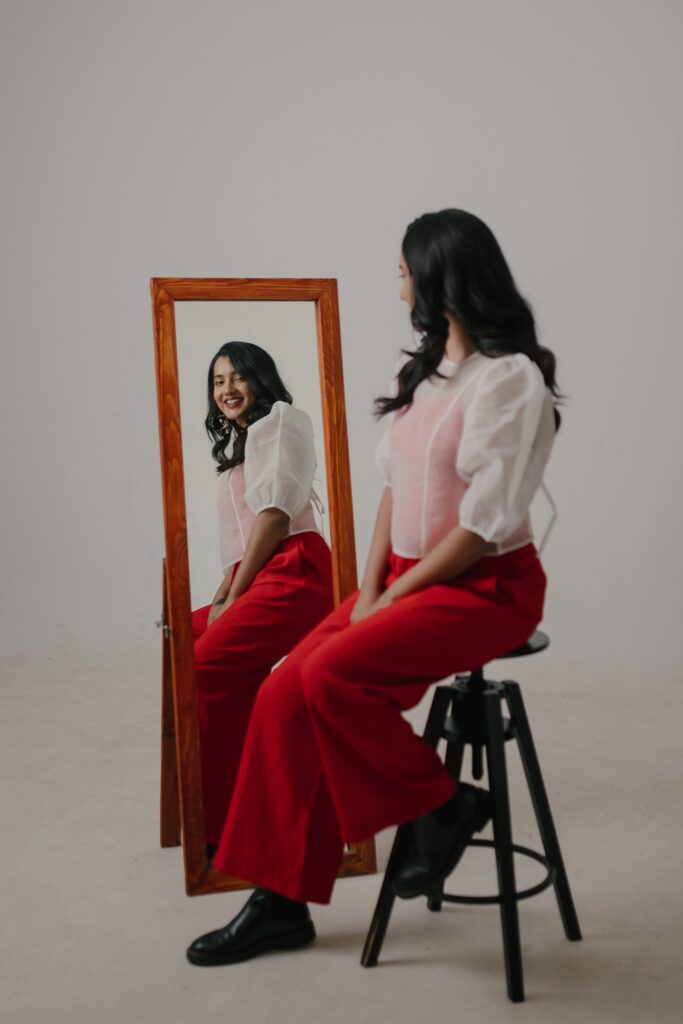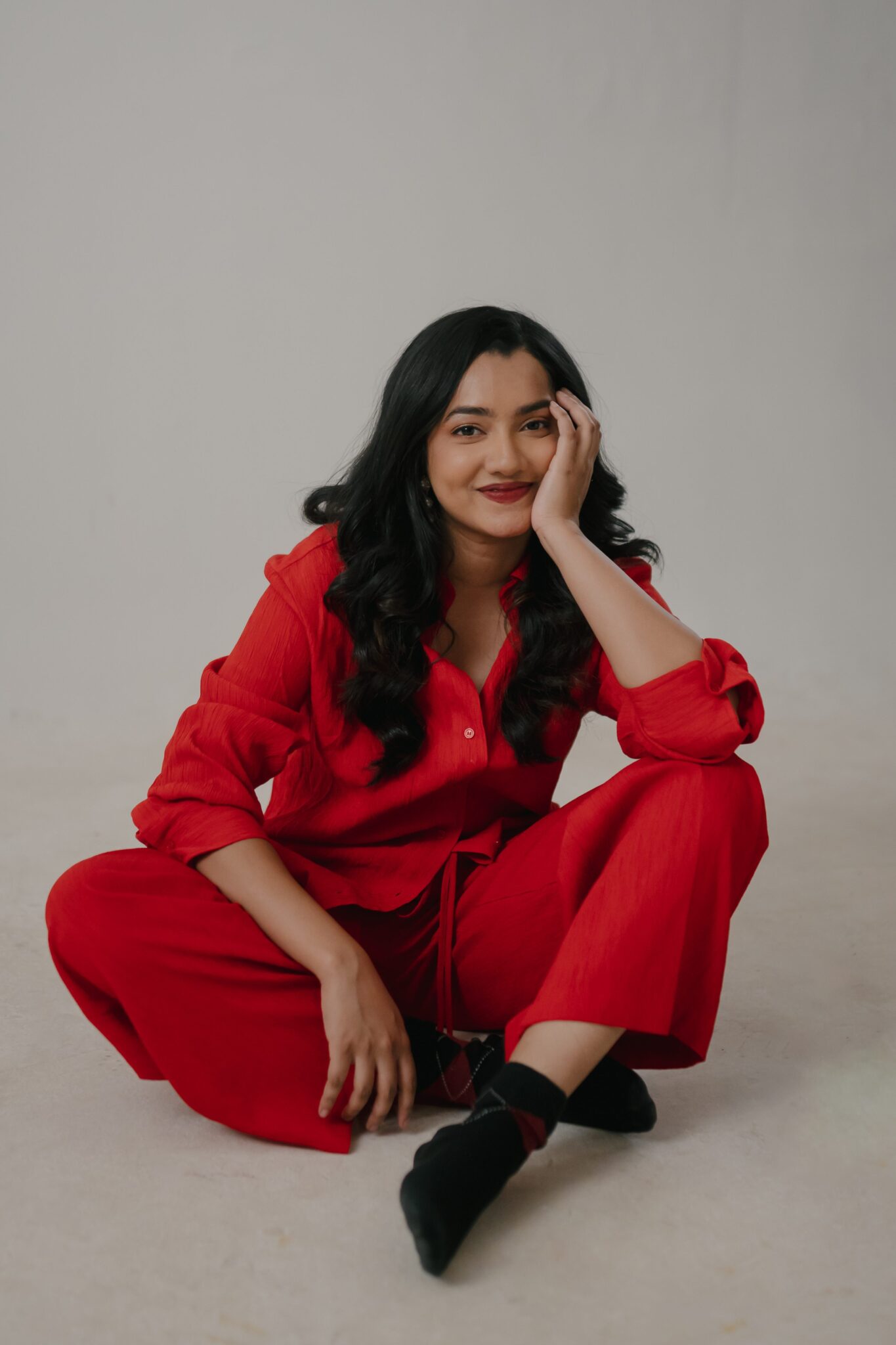The Indian alternative pop scene has many incredible voices, and Frizzell D’Souza’s is among the most promising ones. Armed with introspective, intelligent lyricism, polished music production and employing soundscapes that are reflective of her incredible honesty : she is back with her upcoming sophomore EP : In My Asymmetry. The artist provides us with this overview for the EP : “The idea of “symmetry” represents a mindset that values clear distinctions between right and wrong, good and bad, and doesn’t leave much room for greys. “In My Asymmetry” is a counterpoint against this mindset. It’s a recognition that the world is much more complex than simple black and white categories suggest. There’s a wide range of ideas, experiences, and truths that can’t be neatly put into boxes. It’s a way of celebrating inclusivity, empathy, and a deeper understanding of the complexities of our human experience.” Going into the EP, I had anticipated creativity, considering D’Souza has been the recipient of several accolades with her previous record, and I was pleasantly greeted with a composite project crafted with intelligible sincerity and great care towards all aspects of music-making.

The Bangalore based artist has an interesting story for herself — once an architecture graduate, D’Souza’s life took a turn with the pandemic when she evolved into an enthusiastic songwriter. After having released 3 singles since her debut in 2020, she released ‘The Hills Know of You,’ her debut EP, whose widespread success led her to the decision of taking a leap of faith, and made her pursue music full-time. In My Asymmetry is supposed to be a culmination of this whirlwind journey that she has undergone and undertaken, and it delivers what it promises.
It becomes apparent on first listen that the EP features songwriting that looks inward than outward — traversing through fleeting and persistent emotions and moments in time. The first track, Paintbrushes in the Ground, has D’Souza voice airily grazing synths, string sections and varied percussive elements as she urges the listener, and herself to “take it easy/slow and steady/you’ve known the drill all your life/this is nothing new”. The lyrics stand at a bridge between reassurance and consolation that the artist offers herself and to her audience, and that sets the tone for the kind of rumination that takes place on this record.
The second track on the album, Long To Be, is an equivalent of an outstretched hand — yearning for love that is platonic. D’Souza portrays the kind of angst associated with the desire to be someone’s friend, to know them entirely, and immerse themselves in multiple collective experiences. One can tell that the artist is all for little things, as she sings “I long to take good care of you/ And tell you when you’ve had too many smokes a day/ Ask you if you’ve eaten/if you’re doing fine/I long to make sure you’re okay.”
For Mum’s Lullaby, the artist provides us with a short contextual note : “For a brief period in May 2020 when the world stopped moving and chaos ensued across the globe, my parents started showing us where all our official documents were in case something happened to them. I truly appreciated life a hell lot more when it was on the line. This song is for mum, I can’t tell her enough how much I love her”. This track has her singing over a simple arrangement of primarily acoustic guitars, and it works for the confessional, candid direction that she chooses to go in — letting go of any complex extravagance, perhaps symbolic of the kind of the relationship between her and her mother.

Symmetries, for me, forms the most interesting song on the album. It has the most exuberant style of production, taking a sharp turn from the more demure nature of the previous song. This is the lyrical crux of the EP — where D’Souza insists that “this symmetry is wearing me down, don’t you see?” — pushing for herself to be left to her asymmetries. The drums lend this track a lot of its life, lifting it up into its optimistic sense of resolution, complimenting the underlying guitar riff and the overarching electronic elements on the record.
The 58 second interlude, titled When Dawn Breaks Again, is mostly ambient, and functions moreso as an extended intro to the last track on the EP : Keep Me In Meadows. A wistful, beautiful track that calls back to various elements on the preceding tracks on the project, it is a very clever conclusion. The artist’s bright, optimistic outlook does not dissipate, pulling through the entire project.
In My Asymmetries is a visible labour of love, and it is reminiscent of a number of indie luminaries, leaning a little towards the Lizzy McAlpine route for me, at least. D’Souza is known for her delicate nature of songwriting and the record is well-produced. Sometimes, the EP works itself into a derivative corner, where the influences become a little too visible — however, this is not powerful enough to denude the record of its originality. Instead, it shows that D’Souza knows what direction to take with her work, and what aspects she plans to sharpen and work on, as she continues giving herself and her audience music to return to over and over again.


























